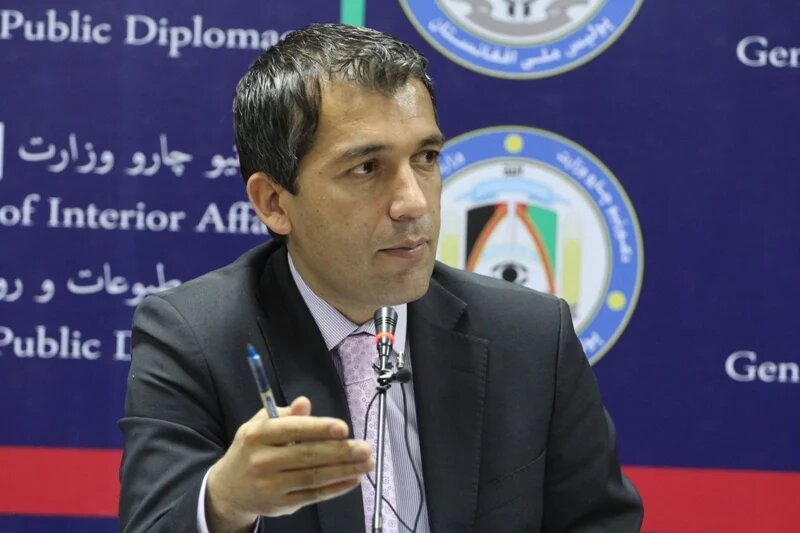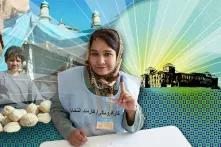
Siddiq Siddiqi is a spokesman for the Ministry of the Interior and head of its public relations unit. He is young, hardworking, serious, and optimistic about Afghanistan’s future. His focus is very much on bringing young people into politics.
How would you describe yourself?
I think I am highly patriotic person, someone who loves working for his country, someone who is putting the national interest above his own.
What where the stages of your political career?
I became involved in various political processes in 2002. One important institution created at the time was the commission charged with drafting a new constitution – a constitution that defined people’s rights and freedoms and kick-started a democratic system. After that I was involved with setting up the electoral process and with educating people about it and its importance. Later, I worked with other government bodies, and currently I am at the Ministry of the Interior.
Where did you study and what subjects?
I have always been in Kabul. Unfortunately, my university days fell into a very turbulent period. I have studied literature at Kabul University.
Has the current younger generation lived up to its expectations?
Although the conditions have been difficult, the new generation has proved itself in various areas. Of course we are living in a society still very much rooted in tradition and where power is transferred from one generation to the next. Family and age still count a lot, and young people are not given enough opportunities in politics and society. However, this is beginning to change. Today, young people are the majority of the population – and they have become better trained and more experienced. Tribal elders and senior politicians have to trust young people – and they, in turn, have to prove that they are able to fulfil political responsibilities. Traditional political structures still wield a lot of influence and, in order to gain a greater share of power, young people will have to learn how to address public affairs and how to work with the people.
Only people that have experienced democracy as they grew up will act in democratic ways. With many of our politicians this is not the case. What can be done to resolve this?
Tribal leaders and senior politicians have created a political monopoly. Young people therefore must find alternative avenues to enter the political scene. If given the opportunity, I am sure, young Afghans will put the national interest over their personal aims – because they have more energy and greater motivation. Young people are more politically accountable than traditional politicians. However, one has to keep in mind that the older generation did not have the same opportunities as the young people of today... Young people must find their own way into politics and power – through legitimate and transparent means.
Afghanistan’s major national issues are handled by people with a political background that is entirely traditional. Why is this the case – and why are there no young people in such positions?
It is true, the experiences of the younger generation should be used to make our country a better place. However, young politicians find it difficult to engage with the general public. We lack young politicians with the ability to talk to the people on the street, to create a movement and organise public support. This is our great weakness. In countries such as India or Pakistan this is different. Rahul Gandhi in India, for instance, is able to motivate other young people and explain the goals of his party.
Are there political parties in Afghanistan that promote young people to positions of authority?
Afghanistan’s greatest deficit is its lack of modern, national political parties. The parties we hear about all have a very dark past, and they have failed to reach a truly national audience. What we need are political parties that promote the interests of the nation as a whole – not the interests of certain ethnic or linguistic groups.
Have you, as a young person, been able to exercise your political rights? Are you a member of a political party?
From the very start, my aim has been to work towards a stable and democratic Afghanistan. For the future, I would like to be involved in setting up a political party that truly listens to the needs of all the people of Afghanistan.
What is your vision for Afghanistan in 2024?
I hope that by 2024 we will have a viable economy. All who come to power until 2024 will have to build the foundations for a strong Afghan economy in order for us to become independent of international aid. I am hoping that we will be able to use Afghanistan’s mineral resources to support our education system, our army, etc. This is my greatest wish – and whatever process will be necessary to achieve this, I will certainly support it.
